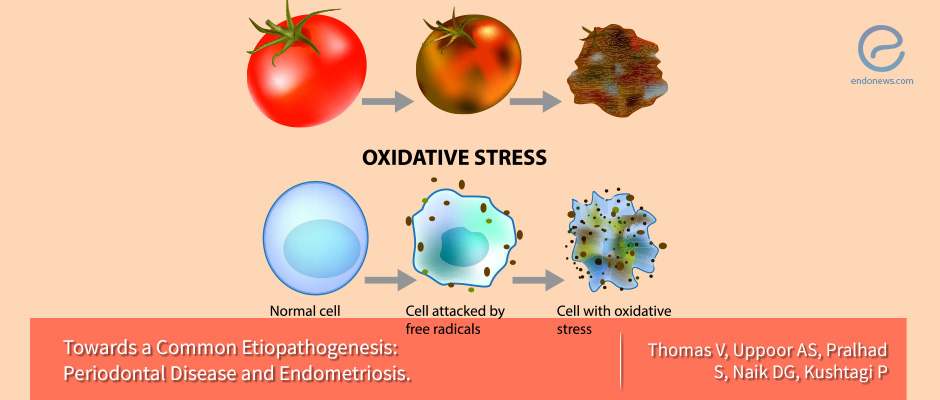The relationship between periodontal disease and endometriosis
Feb 12, 2019
Periodontal disease may be associated with endometriosis.
Key Points
Highlights:
- The proportion of women with severe periodontitis is higher among women with endometriosis.
- Oxidative stress of the periodontal disease may enhance the stress for endometriosis.
- The immune dysregulation seen in periodontal disease can be the reason for the local immune deficiency propagating endometriosis.
Importance:
- There is a commonality of altered levels of immune modulators in patients with endometriosis and periodontal disease.
What’s done here:
- This case-control study screened 25 women with endometriosis and 25 women without endometriosis for periodontal diseases.
- The severity of periodontal disease was classified based on the extent of loss of attachment. Periodontal parameters also included plaque index, gingival index, probing pocket depth.
Key results:
- Scores for the plaque index were similar among cases and controls.
- The measures for probing pocket and loss of attachment did not show any statistical difference.
- The gingival index was significantly higher in patients with endometriosis.
- The proportion of women with moderate-to-severe periodontitis was higher among women with endometriosis.
- A good correlation was found on the effect of the gingival index and plaque index on the remaining variables.
- There was a linear relationship between plaque index, gingival index, probing pocket depth, and loss of attachment among subjects with endometriosis.
Limitations:
- Further studies among larger cohorts of endometriosis are needed to provide evidence about the association endometriosis and periodontal disease.
Lay Summary
Thomas et al. have recently studied the association between endometriosis and periodontal disease which may share a common pathogenesis, and have published it in the Journal of Human Reproductive Sciences. The authors screened a total of50 women; 25 with and 25 without endometriosis, for periodontal diseases. The periodontal parameters included plaque index, gingival index, probing pocket depth, and loss of attachment.
Scores for plaque index, the measures for probing pocket and loss were similar among cases and controls. The proportion of women with moderate-to-severe periodontitis was higher among women with endometriosis. A good correlation was found on the effect of the gingival index and plaque index on the remaining variables. There was a linear relationship between plaque index, gingival index, probing pocket depth, and loss of attachment among subjects with endometriosis.
Severe periodontal disease was observed to be associated with endometriosis. It is well known that oxidative stress, increased reactive oxygen species (ROS) production, and the immune alterations are present in periodontal diseases. Similarly, both mechanisms have been proposed in the pathogenesis of endometriosis.
The authors concluded that the oxidative stress elsewhere, such as the periodontal disease, may augment the stress for endometriosis. The immune dysregulation observed in periodontal disease can also be the reason for the local immune deficiency propagating endometriosis.
However, larger cohort studies are needed to provide epidemiological evidence about the association.
Research Source: https://www.ncbi.nlm.nih.gov/pubmed/30568357
endometriosis inflammation oxidative stress immune diysregulation periodontal disease

